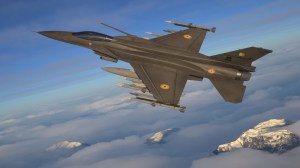India’s space sector is gearing up for a new era. Lately, the space domain has seen a tremendous policy thrust that is aimed at addressing the gaps in commercial applications. While India has achieved success in space exploration, it hasn’t been able to fully involve the private sector in commercial space programmes. Overall, India’s space programme has been entirely driven by the Indian Space Research Organisation (ISRO).
While India’s space economy was estimated to be $9.6 billion in 2020, it has been largely driven by government-funded programmes. Despite this, India’s space sector accounts for only 2% of the global space economy. In this scenario, the policy direction is to assimilate private players in the space domain. The government plans to achieve this by backing the private sector with hand-holding from the space agency. The plan is to reach to touch $12.8 billion by 2025.
Space sector for private players
Since the opening up of the defence sector, a total of 584 industrial licences have been issued to 358 companies for the manufacturing of various defence items. A major policy reform has been based on the initial validity of the industrial license granted under the Industries (Development & Regulation) Act. One highlight of this reform is the extension of the licensing term from three years to 15 years. This has opened up opportunities for private companies, providing them with sufficient time to start operations and manufacture without hindrance.




The whole space programme for the private sector unfolded with the formation of the Indian National Space Promotion and Authorisation Centre (IN-SPACe), as a single-window, independent, nodal agency that functions as an autonomous agency in the Department of Space (DOS).
The government has also formed a body that will represent startups in the space sector – Indian Space Association (ISpA). It has brought all the private entities such as Agnikul, Astrome, Bellatrix, Dhruva, Digantra, TSC Technologies, and Skyroot under one umbrella.
There are already more than 100 space startups in India and collectively they have raised more than $245.35 million in funding.
Lt. Gen. AK Bhatt (Retd), Director General, ISpA looks at the initiatives in the space domain and some of the major milestones.
“The growth achieved by India’s private space industry is the result of the landmark decision taken by our PM Narendra Modi in 2020 to open our space industry to the private sector,” he says.
“As we look back at the year 2022, the industry witnessed some major milestones in the growth journey of the private sector with NSIL authorising the space conglomerate formed by Larsen & Toubro (L&T) and HAL, a Rs 860-crore contract for the commercial development of the next five Polar Satellite Launch Vehicles (PSLVs), the pact of OneWeb with NewSpace India Limited (NSIL) to launch LEO satellites from India, and signing the first licence contract with DoT for satellite broadband followed by the successful launch of 36 LEO satellites from Sriharikota,” said General Bhatt highlighting the role of the private players in space.
Space launches
General Bhatt points out the recent launch of the Private Launch Vehicle from Skyroot this year. He further elaborates: “It has made significant strides in the growth of the private space industry and also a rising Indian space startup like Pixxel launched its third hyperspectral satellite ‘Anand’ for Earth observation applications following the launch of ‘Shakuntala’ earlier this year.”
Another startup Dhruva Space successfully validated its Satellite Orbital Deployer during the PSLV C53 mission and subsequently launched two nanosatellites for amateur communications in PSLV C54 using the P-dot satellite platform. In another milestone, Digantara, a space startup, built the world’s first commercial space weather sensor.
In the space vehicle area, Agnikul Cosmos established India’s first private space vehicle launchpad at Sriharikota. This is the most complex set of space ecosystems and as General Bhatt points out, “it has taken place under the aegis of IN-SPACe.”

The breakthroughs in space launches are also being supported through the 75 Defence Space Challenges Mission called DefSpace. It was launched by the prime minister during DefEXPO 2022.
The space policy also touches upon spectrum allocation. The success of such policy initiatives for private players depends on the viability of how these nascent start-ups continue the groundwork. The access to spectrum and the requisite bandwidth must be cost-effective for them to sustain their investments over time. General Bhatt talks about the challenges as he explains that the government aims to bring together industry stakeholders for their suggestions on the new Space Policy, spectrum allocation, and licensing framework for establishing a satellite earth station gateway.
Space sector for digital communications
The critical area in the space domain is to spur the growth of digital communication. This is again based on the spread of satellite communication in the country. The larger debate is on how to address the converging interest.
To further support the growing space industry and reduce the ‘Digital Divide’, the government may consider the administrative allocation of spectrum. Bhatt further explains howsatellite communication is going to unfold. He clarifies the frequency aspect. “The sustainable growth of satellite communications in India depends on the harmonization of 28 GHz frequency according to the global standards set by ITU, as the retention of 28 GHz frequency within the space sector will support and help connect the unconnected and provide impetus to local manufacturing & innovation.”
New space policy for India
While the Indian space sector has seen private companies gearing toward launching and building small satellites, the entirety of such programmes again depends on the Indian Space Policy. The overarching policy draft is still under the consideration. How soon it becomes a reality is yet to be seen.
“We expect the new ‘Indian Space Policy’ to be announced, this will enable India to likely achieve the capabilities much early, as compared to other developed countries like the US. The new ‘Indian Space Policy’ followed by the Space Activity Bill will be a complete game changer which will cover upstream and downstream activities and will help formulate a vision to bolster the investment climate in the private space sector,” Bhatt remarks on the impending draft which needs to see the light of the day.
Besides, the government is also planning to launch the Production Linked Incentive (PLI) scheme for satellite manufacturing just like mobile handsets and telecom equipment. In fact, ISpA has been suggesting a PLI scheme for satellite manufacturing which is based on the stakeholders’ recommendation. “It will further boost the private space ecosystem and help encourage new startups to come up,” Bhatt points out.
“The Indian space industry is at a growing stage and access to cost-effective capital for startups will further give impetus to the rapid growth. With the private companies shaping up and increasing production, there is also a need for holistic skills development which is the competency of systems engineering, training on how to operate satellites skilfully, and technology associated with special alloy for launch vehicles.”





















